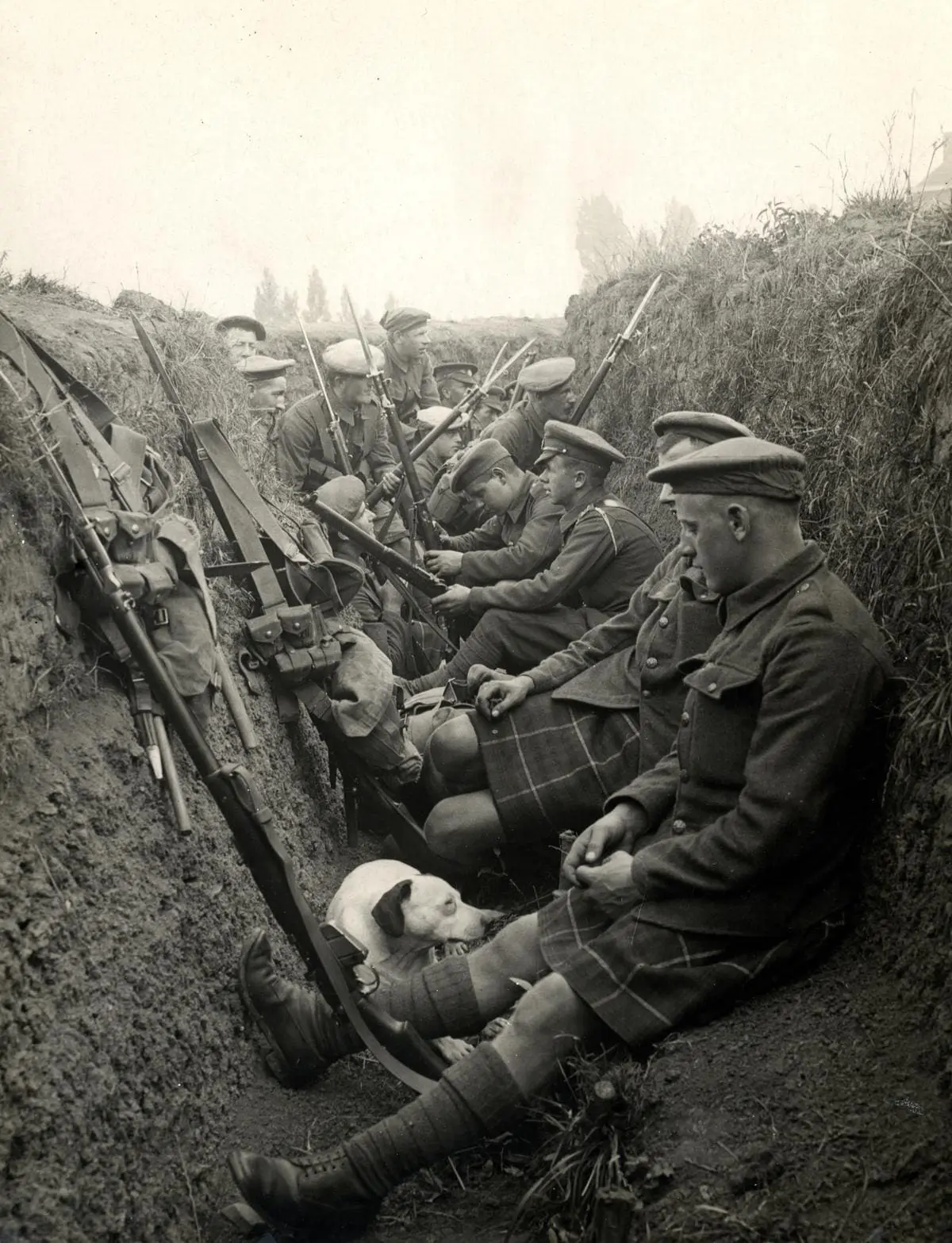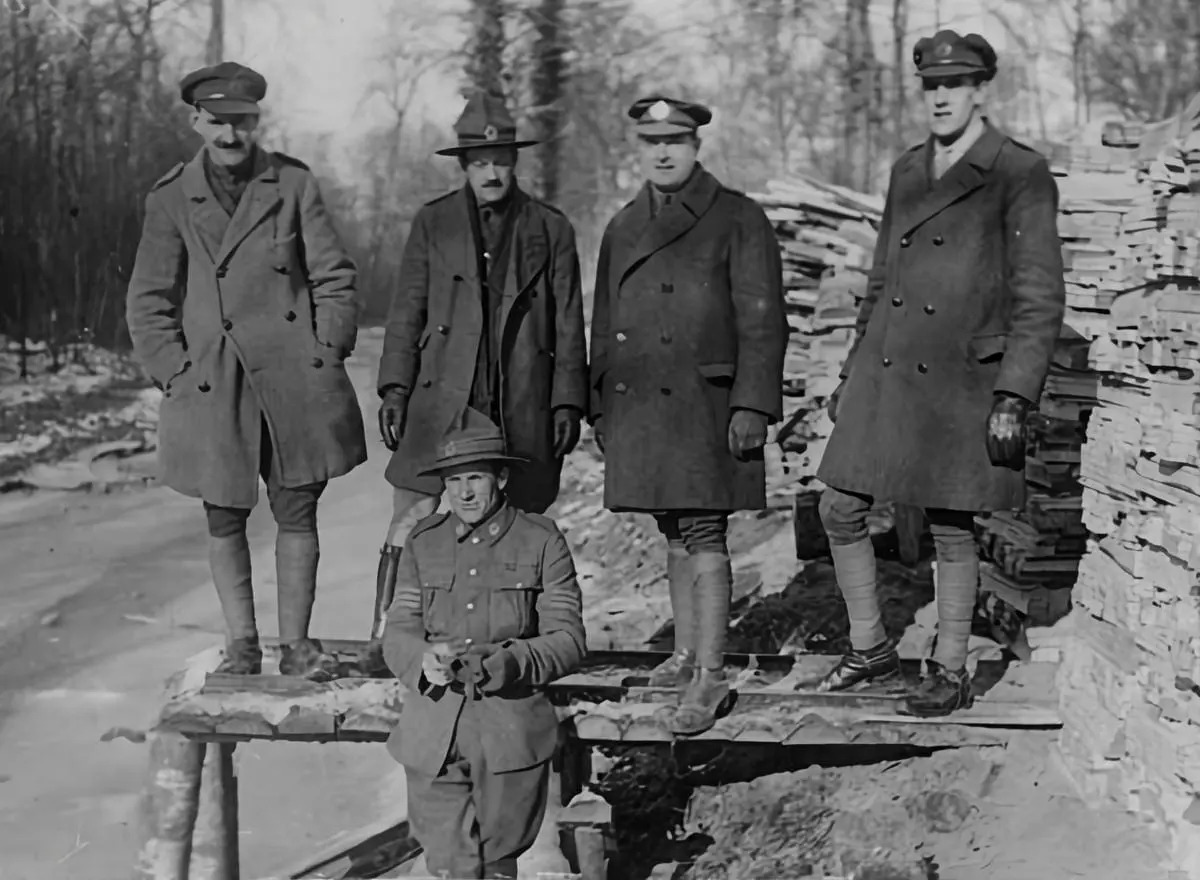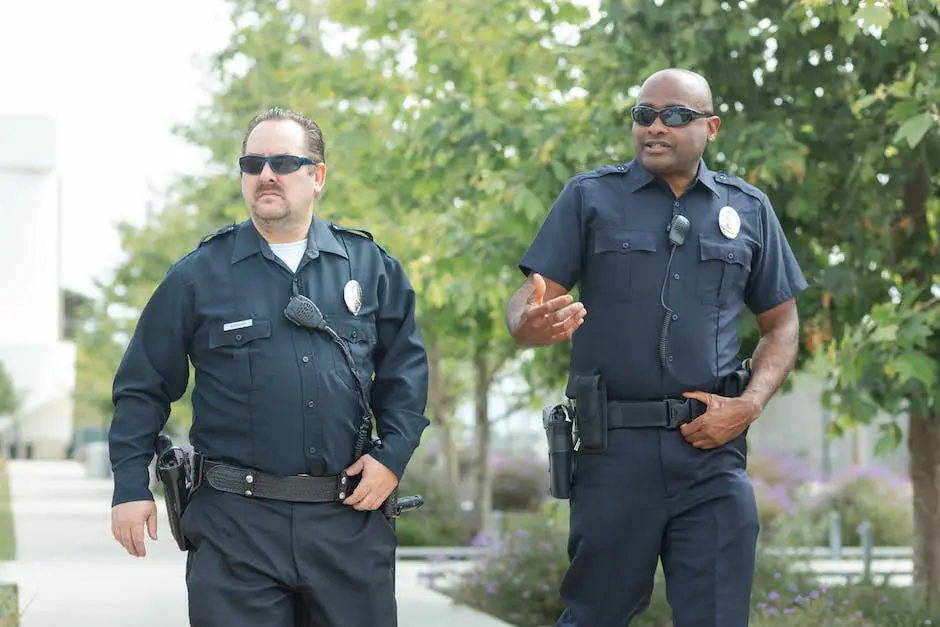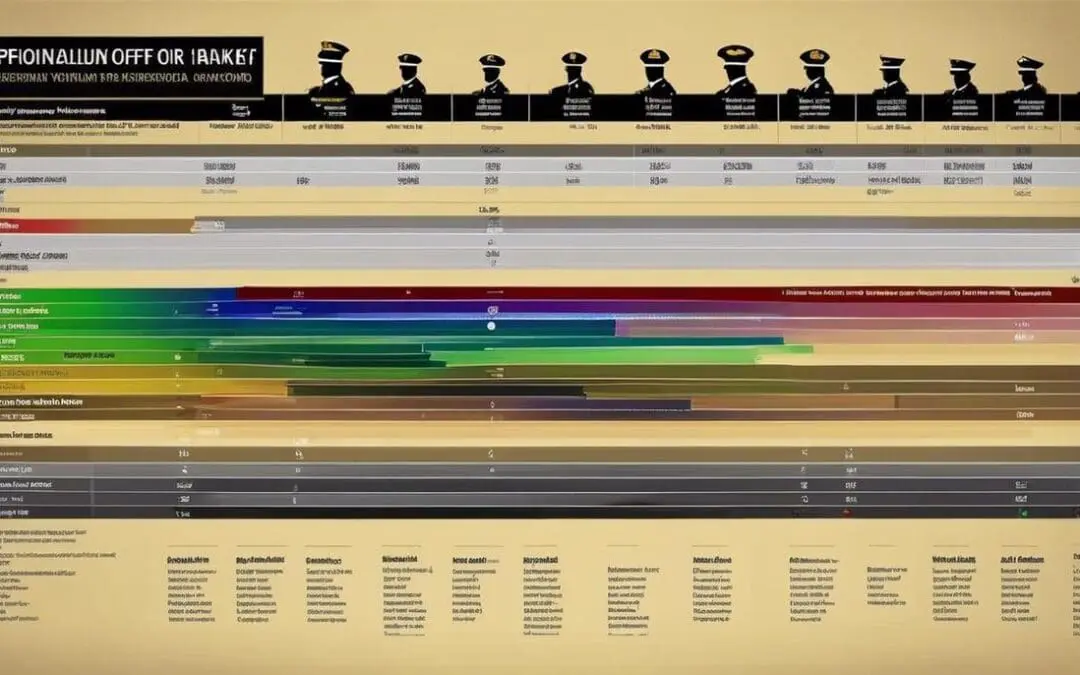The United States Army Warrant Officer Corps stands as a testament to the adaptability and specialized expertise necessary for modern military operations. Emerging from historical roots that trace back to the nascent days of naval mastery, the warrant officer has continuously evolved to meet the changing demands of warfare and military administration. Embarking on a journey through time, we will explore the metamorphosis of the warrant officer’s role from a narrowly defined specialist to a pivotal component in the army’s hierarchy. This odyssey not only reveals the integral function of their advanced training and unique skill sets but also underscores their profound impact on leadership, mentorship, and the overall efficacy of military operations. Through an examination of their operational roles and an anticipation of future developments, we unravel the multifaceted dimensions that define the warrant officer’s irreplaceable place in the United States Army.
Historical Evolution of the Warrant Officer
The Evolution of Army Warrant Officers: A Comprehensive Analysis
Abstract:
The United States Army Warrant Officer cohort has undergone substantial transformations since its inception. This body of elite soldiers, established to fill the gap between enlisted ranks and commissioned officers, has progressively adapted its roles in line with technological advancements and changing military doctrines. The following examination elucidates these evolutions, highlighting the pivotal shifts in responsibilities and expertise that have defined Army Warrant Officers over time.
Historical Genesis and Initial Role:
The genesis of Warrant Officers in the United States Army dates back to the early 20th century. Initially conceptualized during World War I, they functioned principally as maritime masters, mates, chief engineers, and assistant engineers in the Army Mine Planter Service. The rationale was to employ technical experts who could operate with a degree of authority above enlisted soldiers but without necessitating the broad leadership training required of commissioned officers.
Interwar Expansion and World War II:
The interwar period saw the Warrant Officer’s role both expand and formalize within the Army framework. With the Army Reorganization Act of 1920, warrant ranks became integral in all technical services, including the signal, ordnance, and quartermaster corps. World War II catalyzed further evolution as the Army’s increasing complexity demanded highly specialized skills in logistics, intelligence, maintenance, and administration. Warrant Officers adeptly provided continuity and expertise essential to wartime operations, particularly in the aviation sector with the advent of military aircraft.
Post-WWII Developments:
The aftermath of World War II heralded an era of technological sophistication that necessitated more specialized knowledge within the armed forces. Warrant Officers began to concentrate on technical and tactical proficiency within specific military branches, especially as the introduction of helicopters expanded the scope of Army aviation. The Warrant Officer Flight Program, established in the 1950s, exemplified this trend, as Warrant Officers became the backbone of Army aviation, piloting helicopters and fixed-wing aircraft with precision and technical acumen.
Modern Era:
In the contemporary Army structure, Warrant Officers remain indispensable for their technical expertise and leadership within specialized fields. They occupy an array of roles, from cyber operations and intelligence to maintenance, aviation, and even judicial warrant roles within the Military Courts. The Warrant Officer Education System ensures that these soldiers are not only experts in their field but also versed in leadership and management, fostering a melding of tactical prowess and strategic thinking. Their training and education pathways have evolved into a sophisticated array of professional military education components, paralleling the career advancement of these officers.
Conclusion:
The evolution of the Army Warrant Officer’s role reflects the dynamic nature of military operations and the corresponding demand for technical mastery and adaptive leadership. From maritime operations to aviation expertise and cyber warfare, Warrant Officers have sustained their indispensable role within the Army by exhibiting unparalleled skill and professionalism. As military systems and combat environments continue to evolve, so too will the distinguished role of the Army Warrant Officer, adapting to the emergent needs of the United States Army with unwavering commitment and expertise.

Training and Expertise of Warrant Officers
Army Warrant Officers represent a distinct component within the ranks of the United States military, furnished with expert knowledge and proficiency in their chosen fields. Their specialized training, reflecting the seriousness of their commitment and the depth of their expertise, is tailored to produce highly skilled technicians and leaders within the Army structure.
Upon selection, candidate Warrant Officers embark upon the Warrant Officer Candidate School (WOCS), an exacting program delivered at Fort Rucker, Alabama. This initial training regimen is designed to inculcate leadership and tactical skills, forging the foundation upon which further specialized instruction is built.
Following successful completion of WOCS, candidates graduate to the technical and tactical certification phase specific to their career field—often referred to as Warrant Officer Basic Course (WOBC). This phase of training is conducted at various institutions and schools corresponding to the specialization of the Warrant Officer, such as aviation, intelligence, or cyber warfare, to name a few.
In the realm of aviation, for instance, Warrant Officers are immersed in rigorous flight training, learning not just the mechanics of flying but also advanced navigation, aviation tactics, and leadership in aerial operations. Similarly, those in cyber operations delve deeply into network security, ethical hacking, and the safeguarding of military communications.
Amid this training, an emphasis is placed on critical thinking and problem-solving as Warrant Officers must be poised to tackle complex challenges unique to their technical specialty. The advanced training integrates cutting-edge technologies and methodologies, ensuring that these Officers are well-versed in the latest advancements within their respective fields.
The culmination of this intensive training is not an end, but rather a gateway to lifelong learning and continuous professional development. As technical experts, Warrant Officers must remain at the forefront of advancements in their field, often engaging in additional courses and certifications provided through the Warrant Officer Advanced Course (WOAC) and the Warrant Officer Senior Service Education (WOSSE).
Given their specialized roles, requiring both depth and breadth of knowledge, these Officers regularly partake in joint training exercises and may also receive inter-service and civilian education to further refine their expertise.
Undoubtedly, Army Warrant Officers embody an unparalleled commitment to mastery, standing as paragons of professional development within the Armed Forces. Their expertise and dedicated guidance are indispensable to the operational success and the sustained superiority of the U.S. Army.

Photo by karolinabobek on Unsplash
Operational Roles and Responsibilities
The Pivotal Functions of Army Warrant Officers in Contemporary Military Operations
The United States Army Warrant Officer corps is an indispensable component of today’s military hierarchy, endowed with technical expertise, tactical acumen, and leadership capabilities crucial for operational success. These officers fulfill multifaceted roles that span crucial command support to specific and technical missions, contributing significantly to the Army’s overall mission readiness and execution.
Army Warrant Officers amalgamate profound technical know-how with leadership to bridge the gap between enlisted ranks and commissioned officers. This fusion is pivotal in the execution of an array of specialized roles pivotal to the operational prowess of the Army. Each Warrant Officer brings a high level of subject matter expertise, cultivated through rigorous training and sustained professional development, across all facets of Army operations.
Upon completion of the Warrant Officer Candidate School (WOCS), newly minted Warrant Officers undergo initial training requirements that are designed to instill the foundational skills necessary for their advancement and effectiveness as leaders and technical experts. The Warrant Officer Basic Course (WOBC) is the cradle where these professionals begin their transformation, receiving specialized training and certification directly correlated with their respective career fields.
For instance, within the aviation sector, Warrant Officers undergo extensive training to manage some of the most advanced aircraft in the Army’s inventory. Their expertise is not merely confined to piloting but extends to in-depth maintenance and tactical deployment of aviation assets. Similarly, in domains such as intelligence and cyber warfare, Warrant Officers are trained to an exceptionally high standard, with an emphasis on critical thinking and problem-solving skills, thus ensuring they can respond adeptly to the complex challenges presented by modern military engagements and threats.
The cultivation of proficiency is not a one-time event but a lifelong pursuit for Warrant Officers. Continuous professional development is ingrained within the ethos of the Warrant Officer corps, prompting constant growth in knowledge and capabilities. This is demonstrated by their progression through additional educational endeavors, notably the Warrant Officer Advanced Course (WOAC) and the Warrant Officer Senior Service Education (WOSSE), which refine their strategic understanding and enhance their professional portfolios.
Active participation in joint training exercises and inter-service collaborations, as well as civilian education programs, are methods by which Warrant Officers continually polish their proficiency. Such involvement ensures that they remain at the cutting edge of military and technical advancements, thus preserving the ability to provide critical contributions in a variety of operational contexts.
In summation, the role of an Army Warrant Officer is one that necessitates an unwavering commitment to mastery. Their unique position in the military structure ensures that units are equipped with leaders who are not only adept in decision-making and personnel management but also in wielding distinctive technical expertise. The proficiency and dedication of Warrant Officers are indispensable to the U.S. Army’s operational success, rendering their contributions invaluable to the defense of the nation.

Photo by britishlibrary on Unsplash
Leadership and Mentorship
Army Warrant Officers occupy a pivotal position in the linchpin of military leadership and mentorship. With a detailed understanding of technical systems matched by leadership acumen, Warrant Officers often provide guidance and knowledge that is indispensable to both tactical proficiency and strategic operations. Their role, beyond the specific technical expertise, extends to nurturing the next generation of the Army’s technical leadership and ensuring the continuous propagation of institutional knowledge.
Defining the Mentorship Ecosystem
At the core of the Army’s leadership structure, Warrant Officers mentor both junior officers and enlisted personnel, transferring technical skills and fostering the development of professional competencies. This ecosystem of mentorship ensures personnel are not only adept in their present roles but are also prepared for future challenges. The integration of leadership with technical proficiency is particularly crucial in an era where technological advancement is rapid and constant adaptation is the norm.
Contributions to Vocational Excellence
The experienced Warrant Officer often crafts a bespoke approach to leadership, drawing upon a rich repository of operational experience and the application of best practices. Career mentorship is exemplified by one-on-one coaching, unit-level training sessions, and contributions to formal military education. The result is a force multiplier effect where trained personnel exhibit an enhanced capacity for independent command decisions and technical problem-solving.
Nurturing Intellectual Adaptability
By advocating intellectual adaptability, Warrant Officers help forge an Army that is resilient and capable of confronting an eclectic array of challenges. The mentorship provided emphasizes a culture of critical thinking, where personnel are encouraged to question the status quo and seek innovative solutions. Within the sophisticated precincts of cyber warfare, aviation, and intelligence, such mentorship is the cornerstone of operational success, positioning the Army at the forefront of military prowess.
Inculcating an Ethos of Continuous Learning
Continuous professional development spearheaded by Warrant Officers is crucial in an organization where operational flexibility is contingent upon evolving skill sets. Through their commitments to self-improvement and education, they inspire a similar ethos in their protégés. Advanced courses, certifications, and inter-service education engagements are but a few avenues through which Warrant Officers champion the necessity of lifelong learning.
Operational Cohesion and Enlisted Development
Furthermore, Warrant Officers bridge the operational void between the expertise of enlisted ranks and strategic perspectives of commissioned officers. They ensure cohesion and synchronization among various echelons of command. By taking an active role in crafting training programs and executing operational plans, they bolster the technical excellence of the enlisted ranks, enhancing overall operational capabilities.
In synthesis, Army Warrant Officers are not merely custodians of technical knowledge but are principal architects in the construction of a robust, well-prepared, and technically advanced officer cadre. Their leadership and mentorship extend well beyond the transmission of knowledge; they personify an enduring commitment to the growth and operational acuity of the U.S. Army. The proficiency and readiness exhibited by today’s military units owe much to the silent, persistent tutelage of the men and women who serve as Army Warrant Officers. Their ongoing efforts to guide, develop and refine the soldiers and systems of the Army are indispensable to its mission and to the nation it serves.

Photo by libraryofscotland on Unsplash
The Future of Warrant Officers
The Future Prospects for Army Warrant Officers: Roles and Redefinitions in an Evolving Military Paradigm
In the wake of longstanding changes within the United States military landscape, the role of Army Warrant Officers appears poised for further evolution. This cadre of officers is widely recognized for their unparalleled technical expertise, leadership acumen, and a unique position within the command hierarchy. The nuanced approach to Warrant Officers’ involvement will undoubtedly influence the future operational frameworks and strategic doctrines.
As the military apparatus grapples with multifaceted threats and complex technological battlegrounds, the significance of specialized knowledge and advanced skill sets becomes an immutable component of mission readiness and success. It is expected that the Army will lean heavily into the cultivation of Warrant Officers with capabilities in emergent domains such as space operations, electronic warfare, and cyber-electromagnetic activities. With the proliferation of asymmetric warfare tactics and the introduction of near-peer adversaries on the digital and physical battlefields, Warrant Officers are likely to find themselves at the forefront of the Army’s adaptive response.
Future conflicts will necessitate an integration of unconventional capabilities, where Warrant Officers, by virtue of their advanced training and technical proficiency, will operate at the nexus of intelligence-gathering, information operations, and direct tactical engagement. Their expertise will be fundamental in the cultivation of advanced systems such as artificial intelligence (AI), autonomous platforms, and cybernetic enhancements for the modern warfighter.
While rapid technological innovations transform the structure and dynamics of warfare, a critical dimension to the evolving role of Warrant Officers will be their capacity to act as force multipliers. This concept hinges on their ability to augment the effectiveness and efficiency of units through the application of sophisticated systems management, strategic guidance, and adept knowledge application.
In anticipation of this transformation, there is an observable trend toward the stratification of Warrant Officer roles. Specialized positions, such as Cyber Warrant Officers and Space Operations Warrant Officers, may become distinct career fields, each requiring tailored training pipelines and specific professional development avenues to ensure depth of knowledge and technical mastery.
Predictions for the integral role that Army Warrant Officers will play in the future also point to their expanded involvement in decision-making circles, resulting from their expanding expertise and the Army’s recognition of their strategic value. As such, their counsel and competencies will become integral to the cross-domain synchronization required for joint, interagency, intergovernmental, and multinational operations (JIIM), necessitating their involvement in the planning and execution stages of complex operations.
The forward path for Army Warrant Officers also likely includes enhanced interactions with emerging sciences and technologies. Collaboration with defense-related research and innovation hubs will align Warrant Officers with the cutting edge of military advancements. Resulting from this interconnectedness, the military will benefit from Warrant Officers’ contributions to procurement, research and development (R&D), and systems integration, thereby optimizing warfighting capabilities.
In conclusion, as the Army continues to confront novel challenges and operational environments, the future of Warrant Officers will embody greater specialization, elevated responsibilities in strategic domains, and deep involvement in the military innovation processes. Through these engagements, they will remain pivotal in maintaining the Army’s competitive advantage and ensuring national security in an increasingly dynamic global theater. The implications for institutional development and policy will require an attentiveness to the adjustments and growth of the Warrant Officer cohort, guaranteeing that their distinctive role continues to support the Army’s evolving needs and ambitions.

The warrant officers of the United States Army undeniably embody the very essence of specialized proficiency and steadfast leadership required in an era of unparalleled technological advancement and strategic complexity. As we ascend from the wellspring of their historical foundations to the zenith of their contemporary influence, we grasp the significance of their continued evolution. Their pivotal roles across a diverse array of military functions chart a course for both legacy and innovation within the armed forces. As the horizon of the future beckons with its myriad of challenges and opportunities, warrant officers are poised to navigate these uncharted waters with the same dedication and expertise that have long distinguished them as invaluable assets to the military and the nation they serve.

